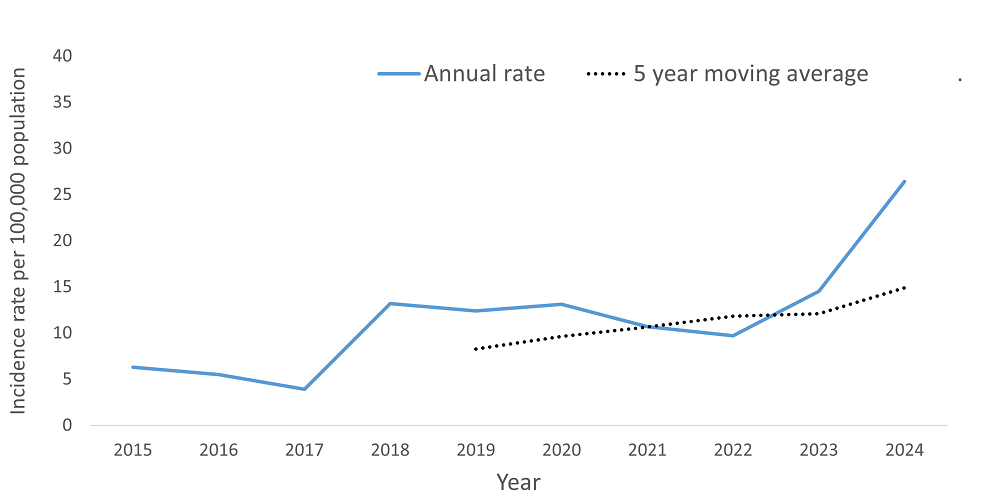Group A streptococcus is a bacterium that people may carry in their nose, throat or on their skin without symptoms.
If GAS does cause symptoms, most of the time it only causes mild illness, including strep throat.
Occasionally the bacterium can cause more severe infections. This happens when the bacterium gets into your blood, lungs, or muscles. This is called invasive group A streptococcal infection or iGAS.
The rarest, but most serious forms of iGAS, are:
- Streptococcal toxic shock syndrome
- Necrotizing fasciitis, often called flesh-eating disease
Local Information
2024 Statistics
Incidence rate is the number of new cases of disease divided by the number of persons at risk for the disease during a particular time period.
Cases:
37*
*Includes confirmed cases in 2024.
Incidence rate per 100,000 in 2024: 26.4
Incidence rate per 100,000 of Invasive Group A Streptococcal Disease by year

Data Sources |
|
More information about GAS |
Reporting |
|
Report to the Health Unit immediately by phone at 705-474-1400 or toll free at 1-800-563-2808, ext. 5229 if iGAS is suspected or confirmed as per Ontario Regulation 135/18 and amendments under the Health Protection and Promotion Act, R.S.O., c.H.7. |
Should one go to childcare, school, or work if they have iGAS? |
|
Healthcare Provider Information |
Contact the Communicable Disease Control (CDC) program at 705-474-1400 or toll free at 1-800-563-2808, ext. 5229, or by email to cdc@healthunit.ca for more information.
Last updated: February 2025, by CDC


